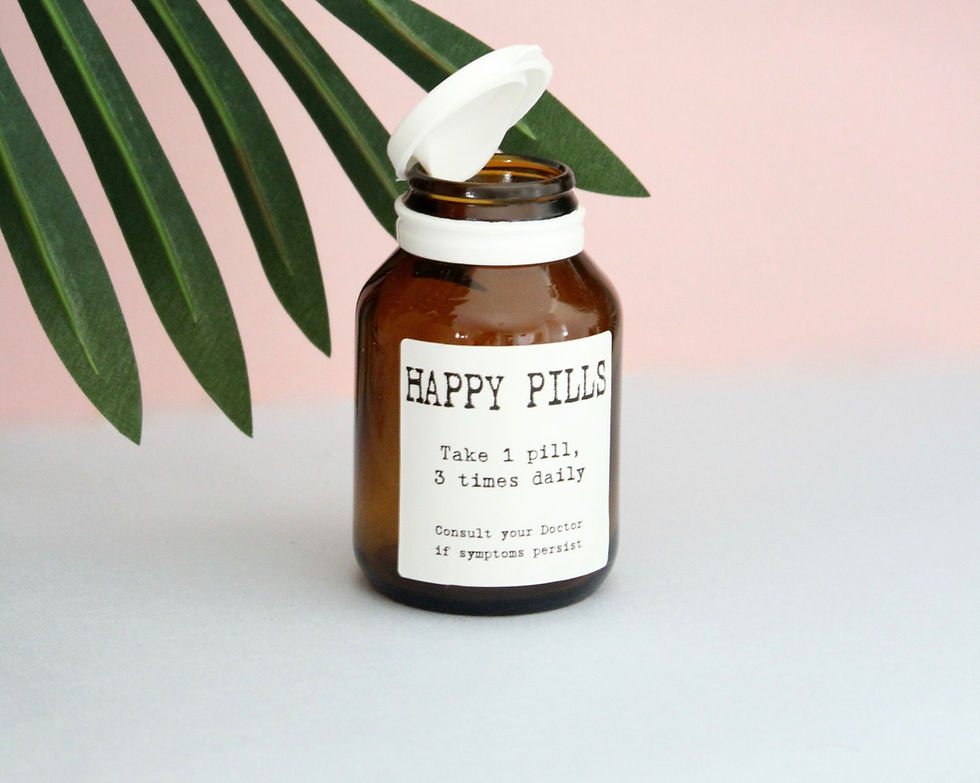
WHAT
Did you know there is a war going on in your gut right now? The good bacteria is fighting to keep you healthy and unharmed by the bad stuff.
Probiotics are live microorganisms, i.e. bacteria, the good kind fighting to keep you healthy.
The purpose is of taking probiotics is to improve the diversity and quantity of bacteria in your gut.
Common strains: Lactobacillus, Bifidobacterium, Enterococcus, Saccharomyces boulardii
Prebiotics are certain fibers that assist in the growth of bacteria in the gut. Think of these as bacteria's food and the probiotics are what contain the actual bacteria.
Common strains: Fructooligosaccharide (FOS), Galactooligosaccharide (GOS), Inulin, Resistant starch
You need both to really grow the good bacteria. That’s where synbiotics come in.
Synbiotics are a combination of both prebiotics and probiotics. Combining these improves how much bacteria actually gets into your gut and the two work in unison to be more effective. Essentially synbiotics give you the most bang for your buck.
WHY YOU SHOULD CARE
Your Gut Biome contains trillions of bacteria necessary for your body to function properly. With the use of anti-biotics and toxic elements in our environment and foods, it limits the diversity of good bacteria. Taking supplements or foods that contain probiotics, prebiotics, or better, symbiotics, can increase the amount and diversity of bacteria.
Prebiotics are proven to help with weight loss, cancer prevention, and regular bowel movements.
They can act as a protectant in your colon if you are at risk for colon cancer and help your body absorb minerals which lowers risk for heart disease.
Probiotics are proven to help with allergies, IBS, lactose intolerance, UT infections, Ulcerative colitis, and Crohn's disease.
Researchers are currently trying to understand how these can affect aging, fatigue, autism, osteoporosis, type 2 diabetes, and obesity. One study showed that utilizing these supplements in child development and while pregnant can help with healthy metabolic development and impacts gene expression later on in life. Pretty cool.
Beyond those benefits, restoring gut health can greatly improve your mood, energy, and immune system.
By combining these two (pre & pro), not only do you get the benefits of both, it helps these to actually work. When taking probiotics alone, a lot is lost and doesn’t actually make it into your gut. You need prebiotics and probiotics together. The prebiotics help to protect the probiotics through digestion so all that good bacteria actually makes in into your digestive track and gets to work keeping your gut in tip top shape.
HOW TO IMPLEMENT
There are two ways to implement these, through food or supplements. Most recommend a combination of both. If you don’t want to purchase a synbiotic, you can combine these yourself.
Using Food Only: To give benefits through food you should eat a diverse set of vegetables.
PREBIOTIC FOODS
green vegetables, onions, chicory, asparagus, Jerusalem artichokes, green bananas, potatoes, rice, leeks, honey
PROBIOTIC FOODS
Fermented foods, yacon root, dragonfruit, Indian mulberry
Using Supplements: One important factor with these supplements is to find one that works for you, does not contain allergens, and look into the brand. You can find these now in almost any grocery store. However, some brands do not actually contain the live bacteria needed or the effectiveness is lost in storing.
:: What to look for in a Probiotic Supplement ::
Contains several billion microorganisms (CFU)
Allergen free (no soy, gluten, dairy, eggs, nuts)
The product is lab tested
Diversity/multiple strains can be helpful
IMPORTANT: Contains prebiotic fiber
:: What to look for in a Prebiotic Supplement ::
Food based prebiotic powders
If this isn't something you want to incorporate into your daily routine, at least consider taking them after you have taken anti-biotics. There is still a lot of ongoing research on this topic and a lot is still open for questions such as, what is the best strain to take and how much is needed to be effective. What this means is that there are studies that show beneficial impacts in taking these, but there is not enough scientific evidence, YET, to understand how these can impact specific health conditions. There is enough evidence to say that it does help promote a healthy gut which is important for a healthy self.
I WANT MORE
Products I use: When I first started taking pro and prebiotics, I went to my local Whole Foods and bought an Allergen-Free refrigerated probiotic and a powdered prebiotic. I add some prebiotic fiber to my coffee and take a probiotic supplement during breakfast and dinner. However, after doing more research, I ordered the Ultimate Probiotic Supplement from Silver Fern Brand that contains both prebiotics and probiotics, and is allergen free. I also try to incorporate fermented foods, mostly organic raw sauerkraut, and fiber prebiotic foods such as leafy greens into each meal.
:: No BS Trusted Products ::
Bee Keepers Natural is a trusted brand with delicious and nutrient dense bee products. Honey is a natural prebiotic and this product has other great benefits such as immune support, energizing, and is anti-inflammatory. It's also a female owned small business, which is always great to support!
Sliver Fern Brand is a trusted brand at NO BS Healthy Self. This probiotic also contains prebiotics, which as we now know is super important. This is also one of the few brands that contains pharmaceutical grade ingredients, is lab tested to make sure the 8 billion probiotics reach your small intestines, allergen free, and is multi-strain to increase diversity in your gut.
Caution in utilizing dairy as a probiotic: the bacteria in dairy/yogurt, Lactobaccillus, can be histamine producing, meaning it may be adding to the list of things your immune system is working to fight off if you have any sensitivity to dairy. It is also shown relatively ineffective at repopulating bacteria in the gut.


Comments